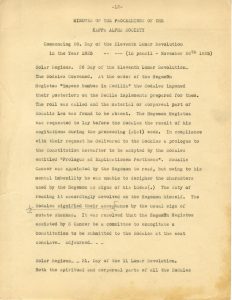Winter Olympics kick off in spite of COVID-19 challenges
February 7, 2022
The Tokyo Olympics was postponed by 12 months during the early outbreak of COVID-19 for the best interest of the athletes, fans, and the Japanese community. The Winter Olympics in Beijing, China was scheduled as expected, kicking off the opening ceremony on February 4. Ever since the pandemic, China has aimed for a zero-COVID-19 strategy through lockdowns, mass-testing, and rigorous quarantine guidelines. Even as new variants like Delta and Omicron have evolved and spread, Chinese authorities have yet to cease their strategy to prevent COVID-19. Effective coordination and management of the pandemic allow for the timely start of the Winter Olympics in 2022.
As athletes arrive in Beijing, they are required to adhere to a series of strict protocols to contain the spread of COVID-19 issued by China and the International Olympics Committee. As explained by ABC News, athletes who are not vaccinated are required to be quarantined in Beijing for 21 days before being allowed into the closed-loop system. Those who are fully vaccinated must be vaccinated at least 14 days in advance of arrival. Athletes must also take two PCR tests before and after their flight to Beijing.
Furthermore, China will limit the number of spectators allowed to watch the games in person, form a closed-loop system, and enforce strict testing and quarantine measures for those who are infected, according to ABC News. Constant screening and daily testing are also required, similar to but stricter than the Tokyo COVID-19 management system.
Despite the goal of zero-tolerance, athletes have been in emotional and physical distress. For example, USA figure skater Vincent Zhou who won a silver medal in Monday’s figure skating team event has tested positive for COVID-19 and must opt-out of competing in the Tuesday game. He expressed his regret in a video on Instagram, that “it seems pretty unreal that of all the people, it would happen to myself… I’ve taken all the precautions I can. I’ve isolated myself so much that the loneliness I felt in the last month or two has been crushing at times.”
Athletes have also expressed concerns about the poor food, bad internet connection, and dearth of training equipment in Beijing. Russian biathlon competitor Valeria Vasnetsova said on Instagram that her “stomach hurts, I’m very pale and I have huge black circles around my eyes. I want all this to end. I cry every day.” Germany’s three-time gold medalist Eric Frenzel who has tested positive adds that the hotel situation was unreasonable, given that the rooms were too small and unhygienic. However, other athletes on social media have praised Beijing for better service and facilities. American luger Summer Britcher shares in a TikTok video the remote control adjustable beds in the Olympic Village dorms. USA snowboard competitor Maddie Mastro compares the Beijing beds with Tokyo ones, commenting that “this is better than the cardboard beds.
Other challenges Beijing is facing include viewership. As reported by Fox News, the number of people watching the opening ceremony saw a historical low, a significant drop of 43% less viewership compared to previous Games. The Wall Street Journal explains that the Olympic’s overall viewership has been on a steady decline, as there was a 36% drop in the viewership of the Tokyo Olympics. COVID-19 is among one of the reasons for the decrease in viewership, but in the case of Beijing, there is more to the story.
In particular, some people are refusing to watch the Olympic Games for political reasons, and American TV personality and columnist Meghan McCain is one. She tweeted on February 4 that “there is no reason to watch a Winter Olympics that is holding up and spreading propaganda for a regime that is committing actual genocide and ethnic cleansing. On top of poisoning the world and killing 6 million people. Absolute shame on the international community for this.” Before McCain’s statement, the Biden Administration also announced a diplomatic Olympic boycott on China last December, declaring that they would not send any diplomatic representatives to Beijing in response to the alleged ethnic cleansing of the Uyghur population, which Chinese authorities have denied. Jen Psaki, the White House press secretary, assures that athletes of “Team USA have our full support… but we will be contributing to the fanfare of the games.” According to NY Post, other countries also refused to send official representatives to the Olympics, including Australia, Canada, Japan, and the United Kingdom.
The Winter Olympics this year proceeds in a complex reality. In a positive light, the world is finding ways to return to normalcy by continuing hosting international sports events as COVID-19 continues to threaten public health. However, countries and athletes continue to face the repercussions of COVID-19, and athletes must adjust promptly to rapidly changing situations of the environment and their own health.







